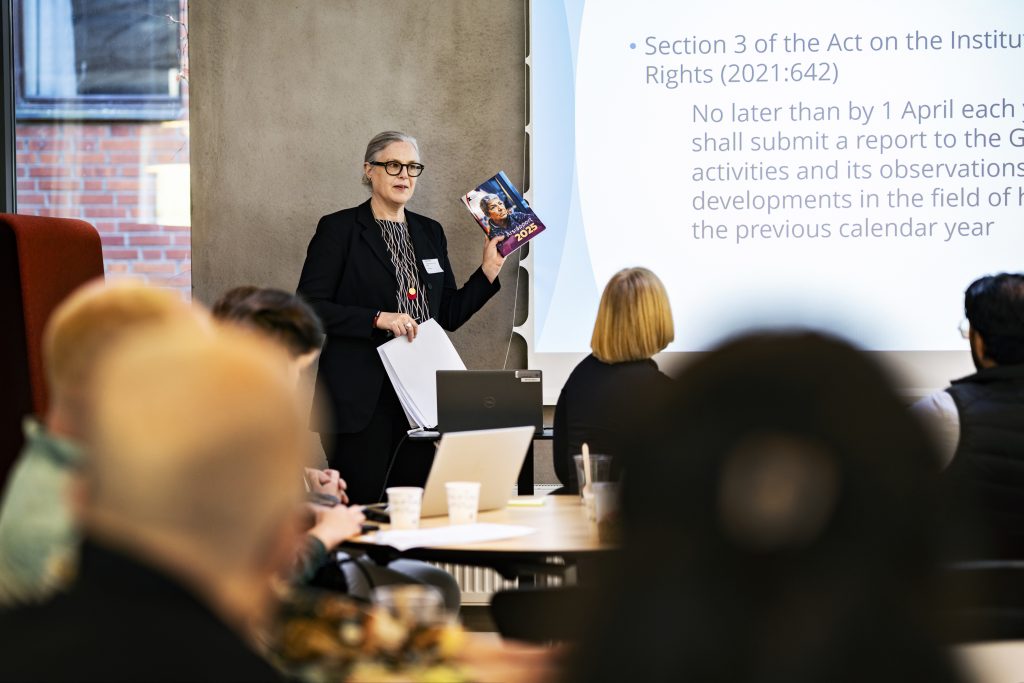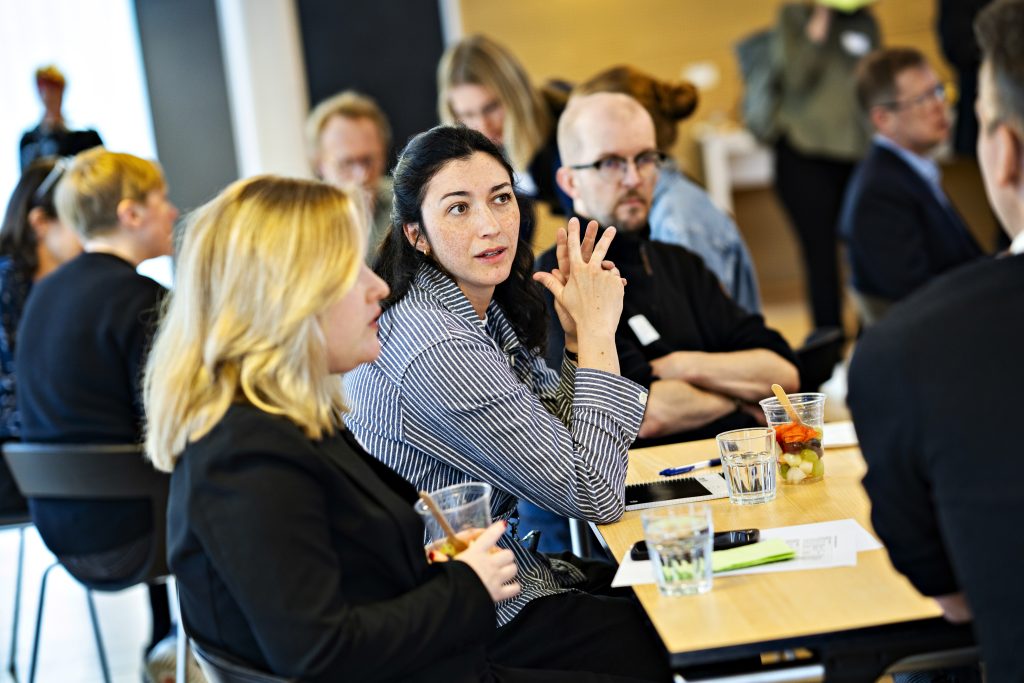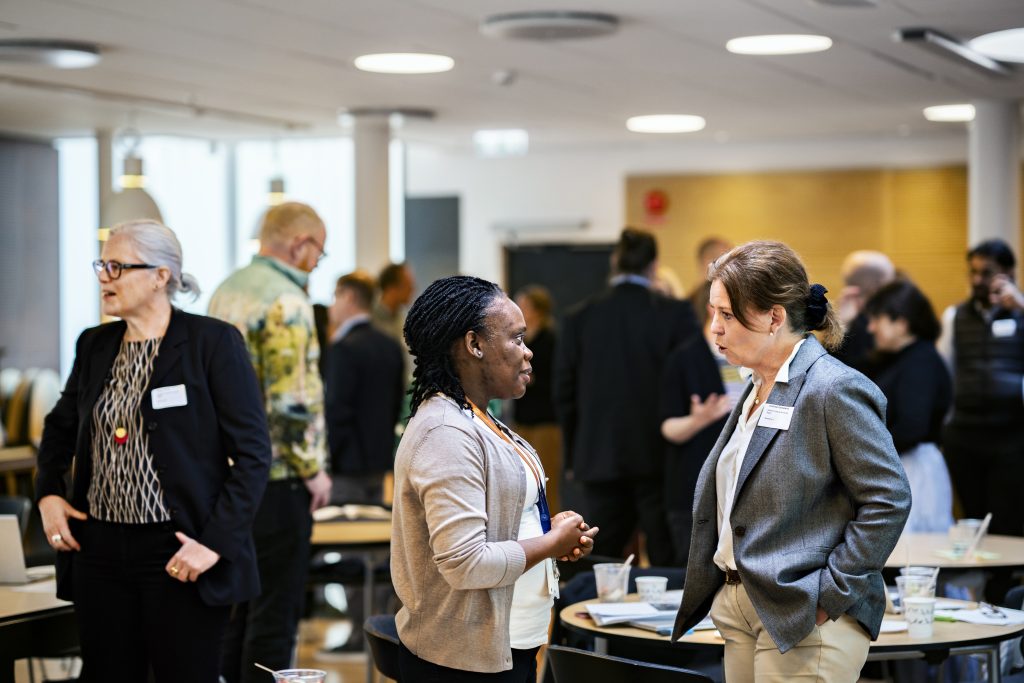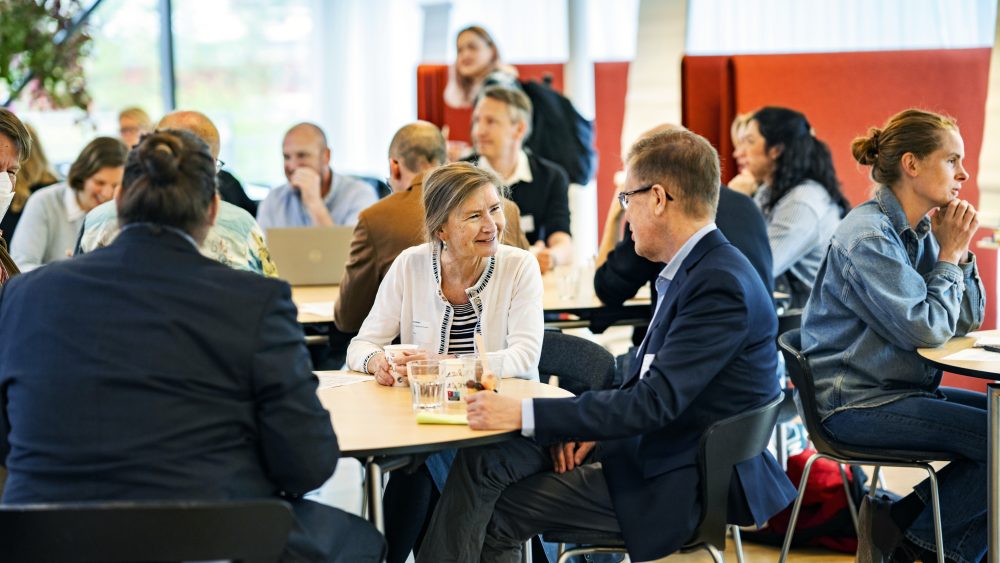By Lena Halldenius, Professor of Human Rights and Coordinator of the Human Rights Profile Area
On the 29 April 2025, the Human Rights Profile Area and the Swedish Institute for Human Rights organised a Human Rights Dialogue. Around 50 people from Lund University, the Institute for Human Rights, and the Raoul Wallenberg Institute met to discuss, reflect, and start forming new research agendas for pertinent human rights challenges in Sweden today and in the near future.
The Dialogue opened with a presentation of the newly launched Annual Report from the Institute for Human Rights, on how human rights are respected and realised – or not – in Sweden (https://mrinstitutet.se/rapporter/arsrapport-2025-om-manskliga-rattigheter/). The Report found that general support for human rights remains very strong in Sweden, with survey results suggesting that 82% believe that human rights are important to them and reflect their values. A reflection that persisted throughout our discussions was that it would be interesting and important to know more about what is behind those figures. What is the perception of human rights that inform these numbers? A potential research project is beginning to form itself already!

Discussions continued in small groups around different themes: 1. Discrimination, racism, hate, and threats, 2. Economic,social, and cultural rights, 3. Rule of law and shrinking civil space, 4. Climate and environment, and 5. Methodological challenges for measuring human rights.

Among the maaaany topics covered, we talked about how big societal transitions (like digitisation and the green transition) bring new challenges that the human rights framework has not been designed for. Do we need to rethink human rights when things we have taken for granted are in flux? In the wake of a weakening democracy and a harsher social climate, we were also alert to a new kind of talk about the alleged “social contract”, where rights are surreptitiously conditioned on duties to behave and blend in. We begin to see how human rights are used to justify – in the name of security – interventions that just recently were seen as obvious violations, like mass surveillance and frisking children without any suspicion of criminal activity. What is the relationship between the individual and the state today, and what is the role for civil society and activism, when democracy is put to the test in an increasingly authoritarian political culture?
Human rights are supposed to be instantiated in law and institutions, but they are also aspirational and normative ideals to strive towards. This is a delicate balance. Is there a risk that aspirations and ideals come at the risk of making formal protective institutions irrelevant? At the same time, rights are also affective and an aspirational framework could help foster a more resilient political culture of rights. We are currently witnessing persistent inequality between countries and growing inequality within countries. Whether economic inequalities in themselves can constitute rights violations is a hotly debated topics. But one thing that seems clear is that vast economic inequalities and wealth concentration in the hands of a few have seriously detrimental effects on democratic institutions and civic participation.
Sweden is often portrayed as a champion of economic and social rights. An international comparison would be valuable to assess whether this perception holds true. But how can large scale studies of the progressive realization of economic and social rights be done? What are the indicators and the relevant data? Dealing with such methodological challenges will be a crucial part of human rights research ahead. We are just getting started!


